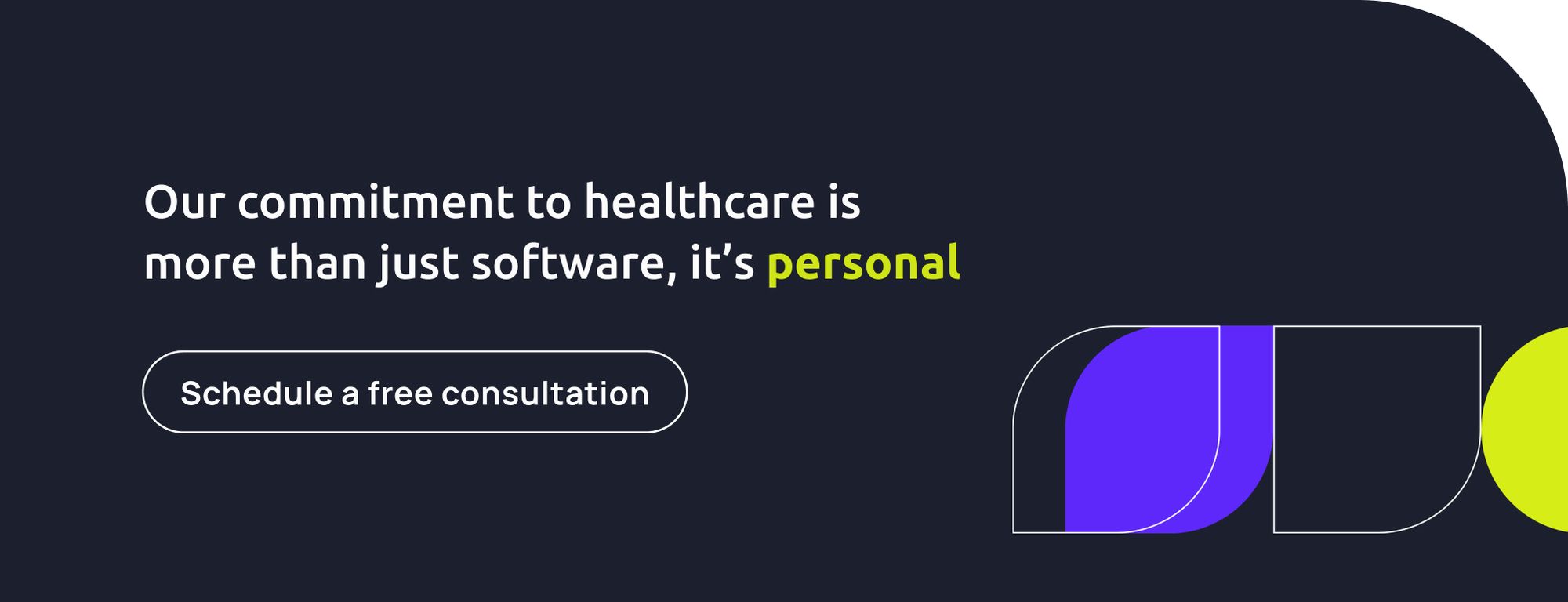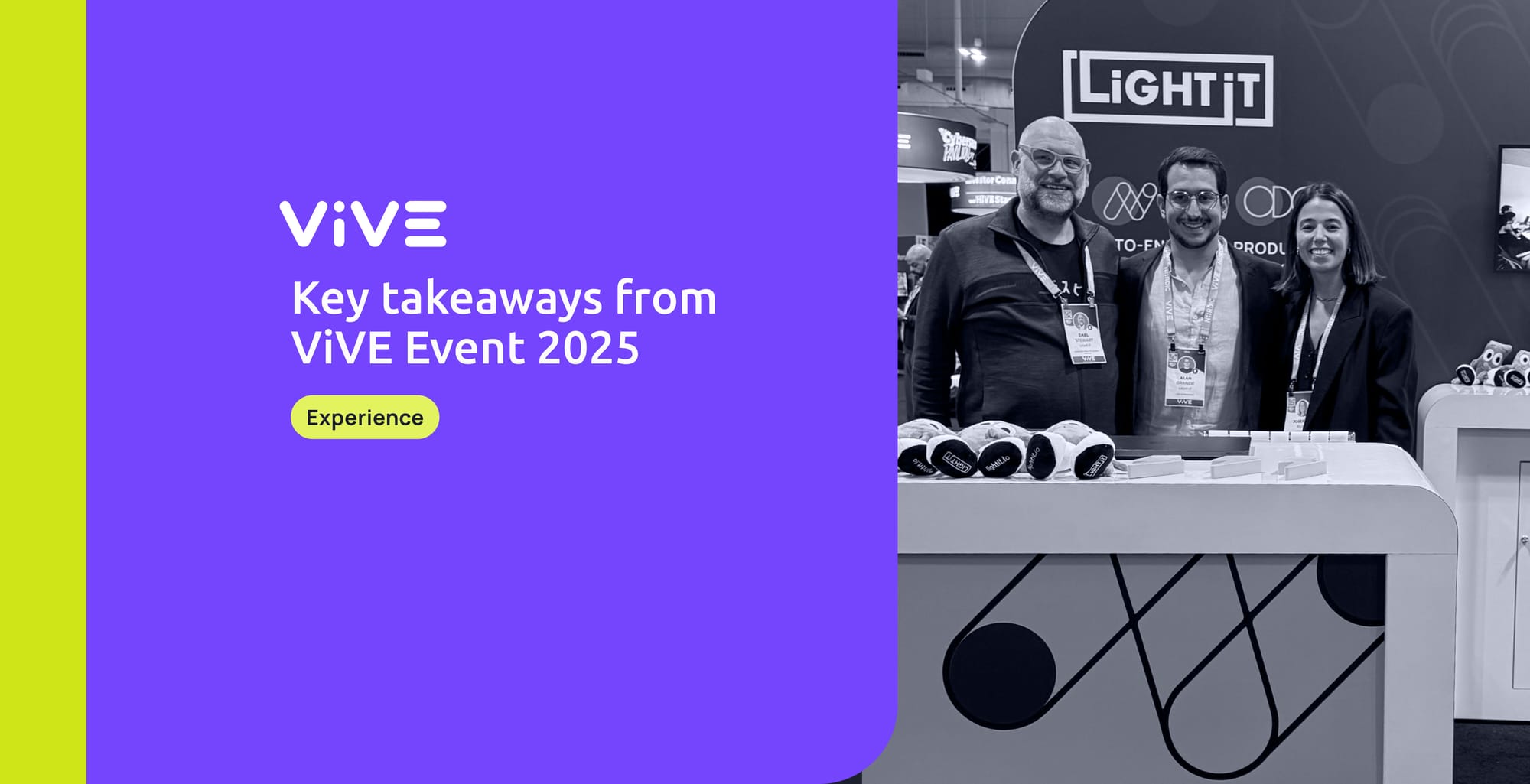Discover Light-it’s team key takeaways from the event that, once again, set the tone for the year ahead in Healthcare IT and Digital Health. We joined the 8,000+ in Nashville and hosted a hectic side event for health innovation insiders. Read everything you need to know about the event below!
With 600+ sponsors, 350 speakers, and over 8,000 attendees, ViVE 2025 had it all—snowstorms disrupting travel, therapy puppies, homemade cookies, a golf simulator, and plenty of cowboy hats. But beyond the fun, what truly made the event stand out were the connections and conversations.
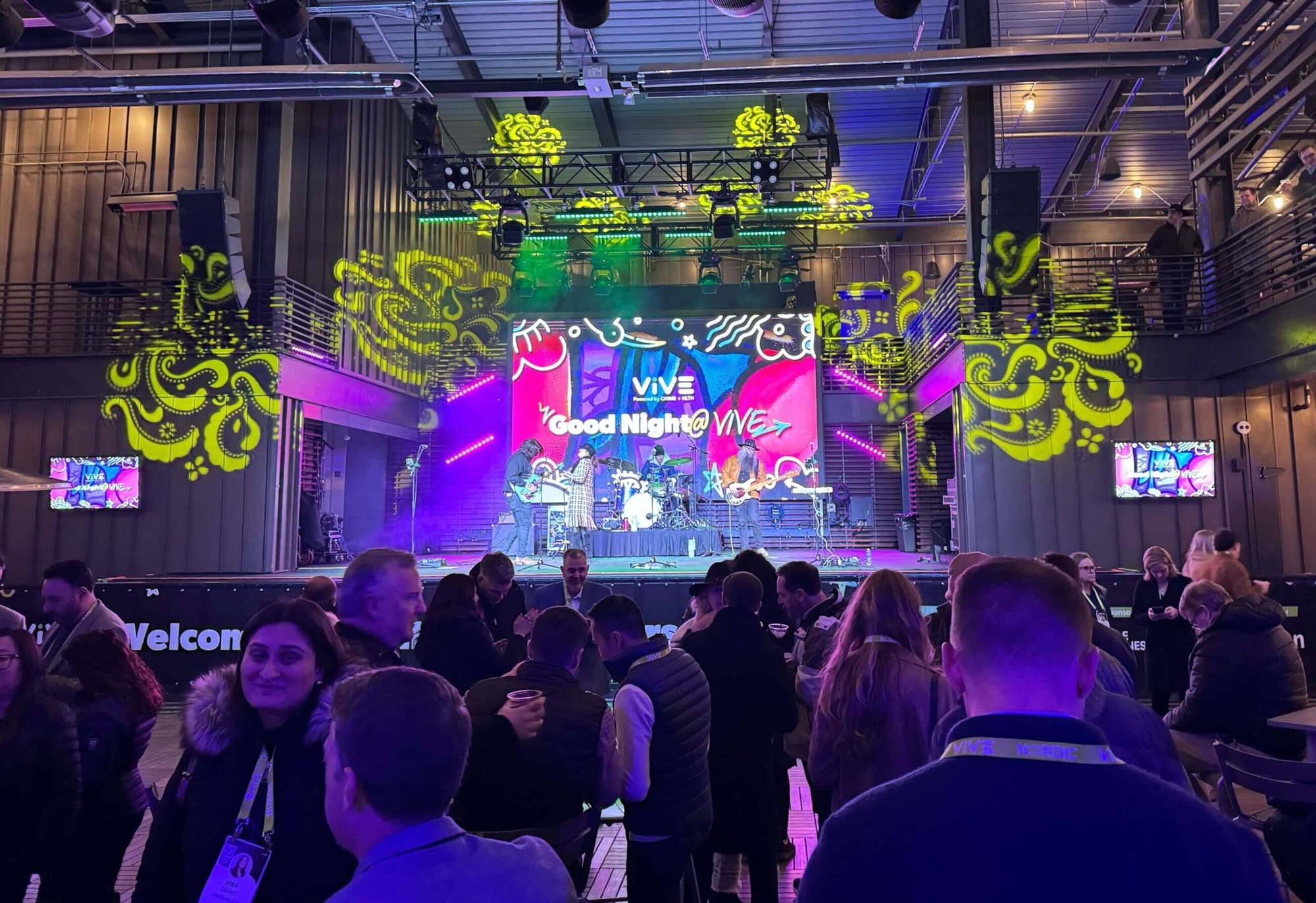
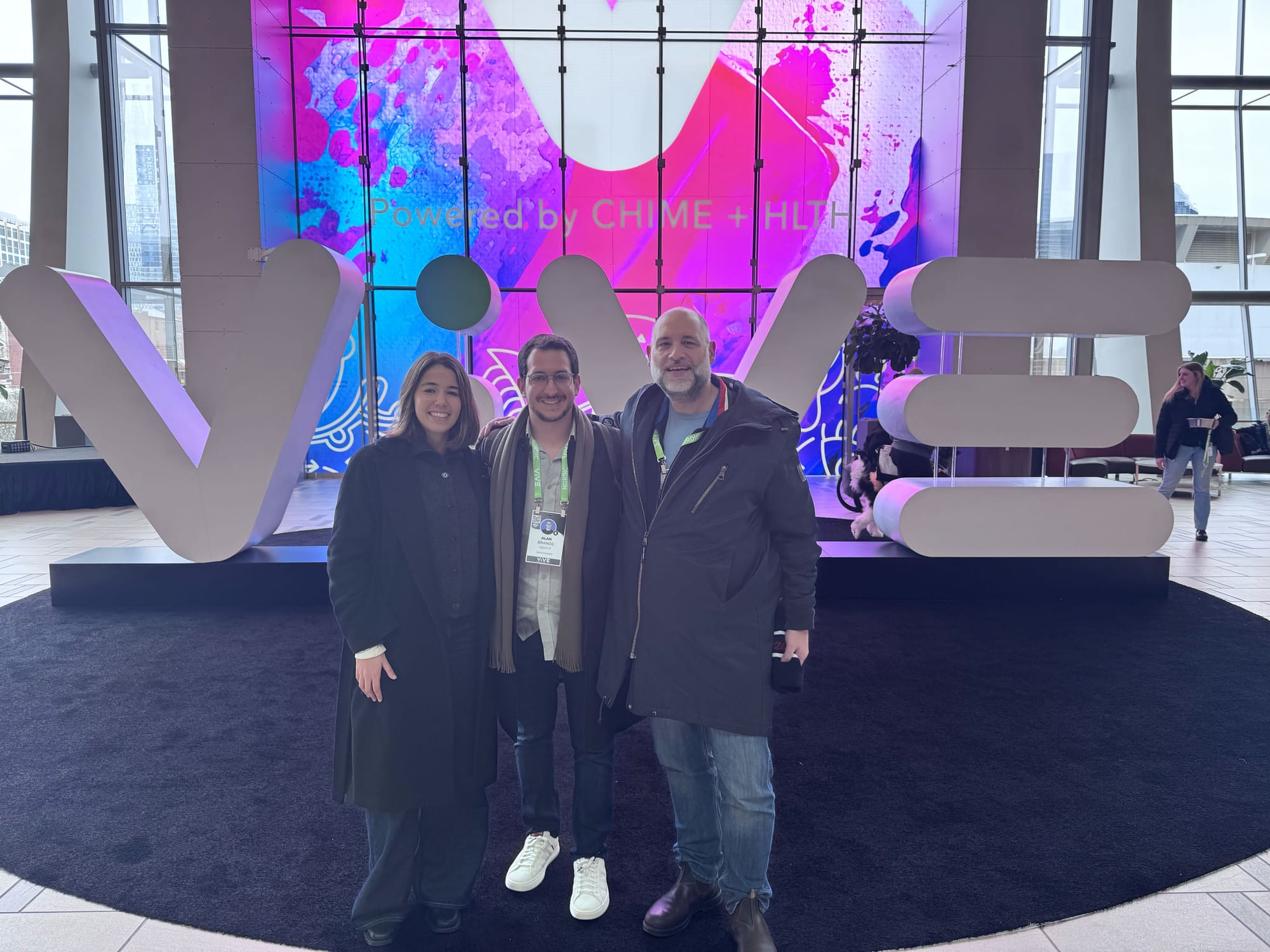
Ligh-it's Team at ViVE 2025
The panels were packed with insights on AI, interoperability, and the future of healthtech, while the exhibit hall buzzed with meaningful discussions and fresh ideas. If you couldn’t make it, don’t worry—we’ve got the key takeaways right here.
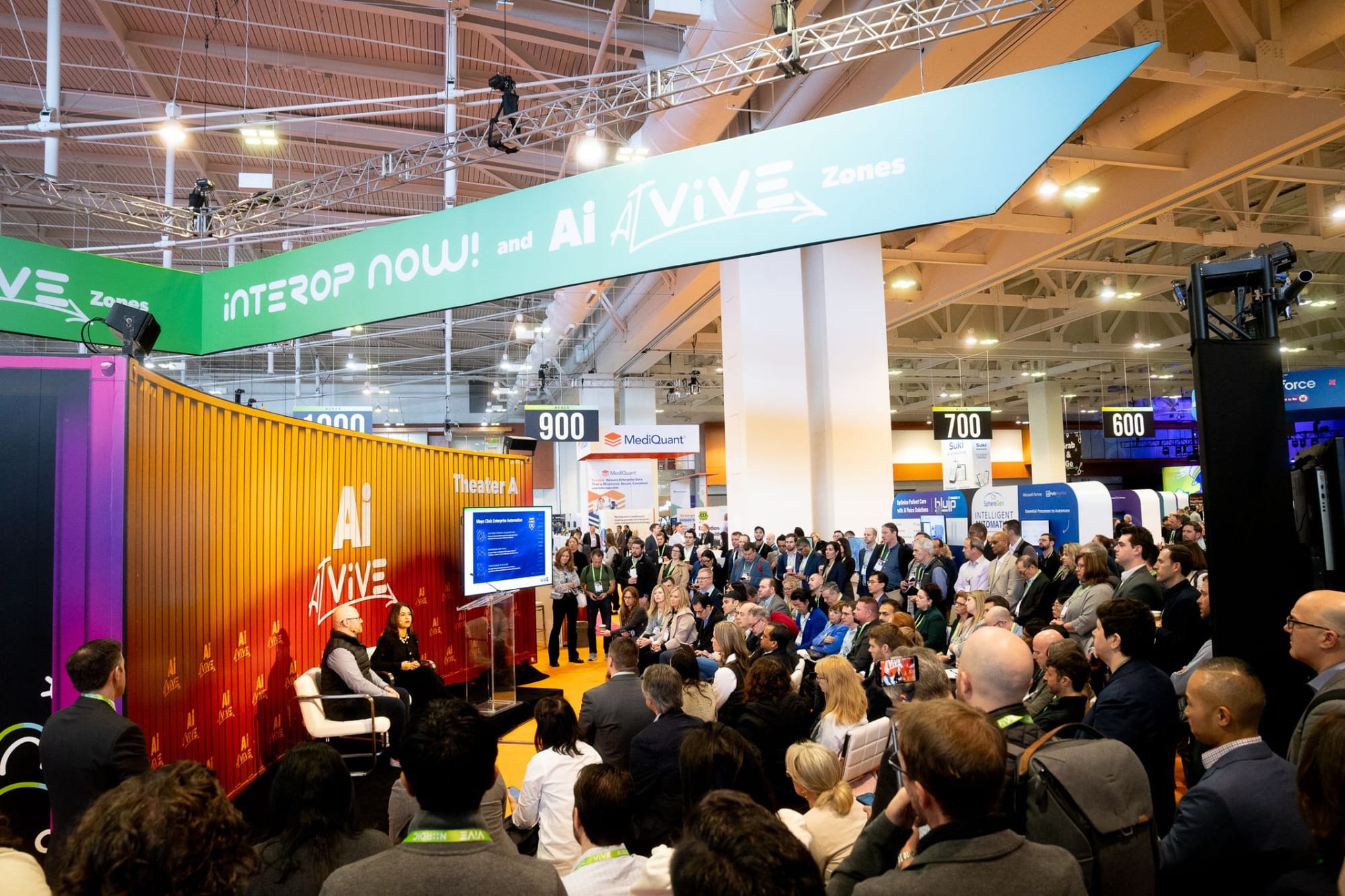
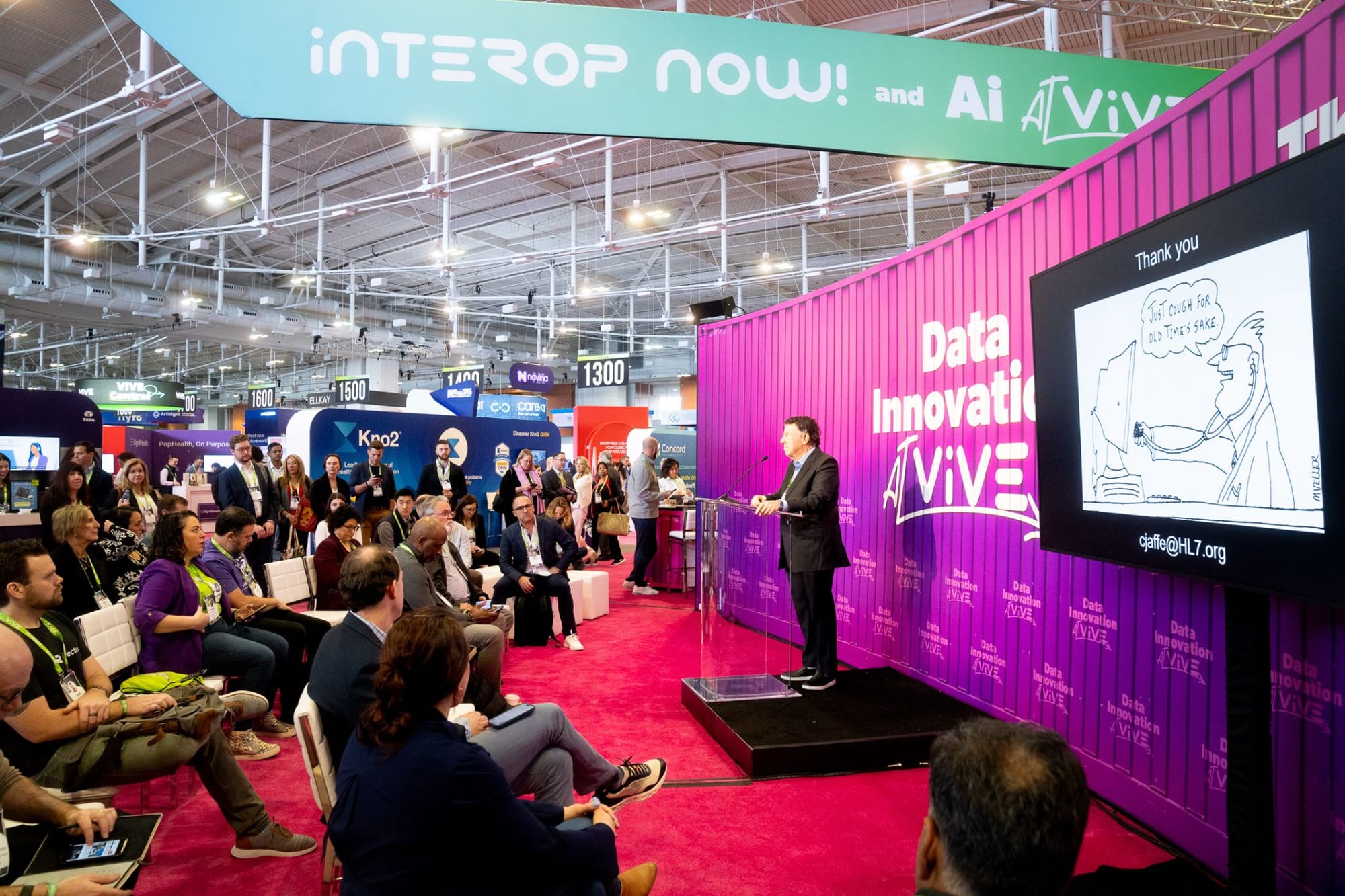
Pictures courtesy of ViVE
Let's break down our key takeaways from this year.
1: AI Reimagined
AI was once again the hottest topic at ViVE 2025, but this year, the conversation took a notable shift. Instead of focusing on what AI could do in theory, discussions were centered on real-world applications—how AI is actively improving care delivery. As one speaker put it, “AI should help providers focus on people, not screens.”
Joe Petro, Corporate VP of Health and Life Sciences Solutions & Platforms at Microsoft, emphasized this shift in his session, “You Say You Want an Ambient AI Evolution.” He highlighted ambient intelligence as the future of AI in healthcare.
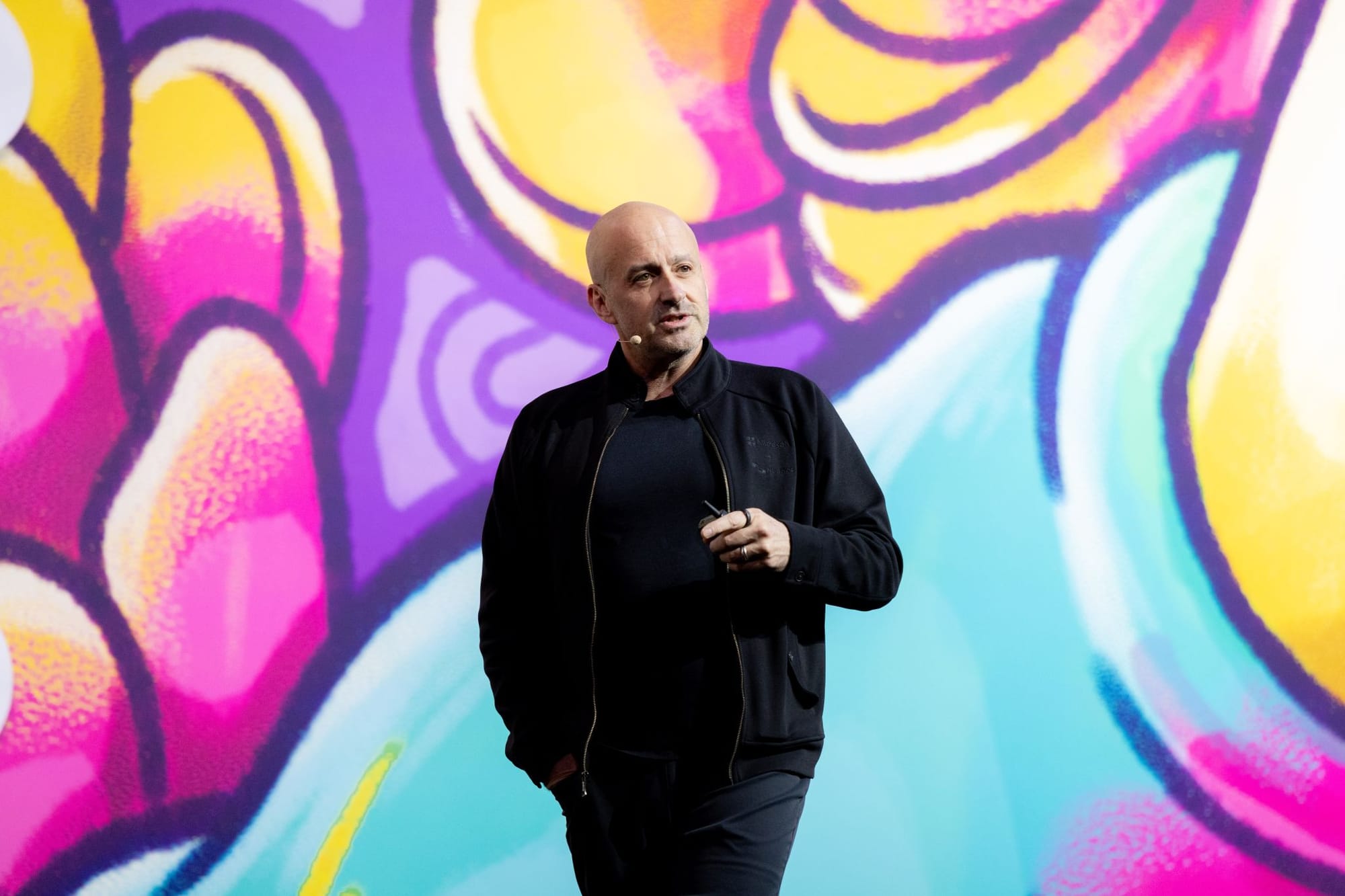
"UX is going to change. That is basically what ambient AI has done for us. We basically completely changed the user experience in the way technology manifests."
But what is Ambient AI? Ambient AI refers to artificial intelligence that seamlessly integrates into everyday environments, providing intelligent, real-time responses without requiring direct interaction. It anticipates needs and adapts to improve user experience, whether in smart homes, workplaces or healthcare...
The idea of ambient technology goes way back, even to Star Trek. The show has inspired multiple tech gurus (even Steve Jobs) and keeps being as relevant as ever. In the session, Petro explained how the crew on the Enterprise would handle unexpected situations - like meeting new aliens or getting into battles - while chatting calmly among themselves. In the background, the ship's computer would quietly feed them important info without interrupting the action. This seamless integration of tech into their environment is essentially what ambient computing is all about: technology working in the background without getting in the way.
"It's the absence of technology in the experience. The technology is really meant to augment the experience. It's not a pilot. It's not an autopilot. It's a co-pilot."
This trend will surely enhance patient experience, making it the center of the interaction:
"None of us actually got into this business to be typists or administrators. This is what ambient does. When we talk about our value, we talk about turning the chair around," Petro said.
Of course, while AI adoption is accelerating, it also brings challenges, especially in healthcare, where data security and trust remain major concerns. At ViVE, we heard discussions about how AI is slowing down sales cycles due to growing scrutiny around data privacy. Organizations are wary of potential data leaks and demand transparency in how AI models handle and process information.
As Jason Taule, CISO at Luminis Health, emphasized in the “Change Healthcare Breach: No Message Could’ve Been Any Clearer” panel:
"The big takeaway is that we all, as customers or as members entering an ecosystem, have to be more demanding of our vendors and of one another."
2: The Doctor-Entrepreneur Revolution: A Growing Trend in Healthcare
More and more doctors are stepping into the world of entrepreneurship, using their firsthand experience in patient care to drive innovation. With a deep understanding of healthcare’s challenges, they’re uniquely positioned to build solutions that are not only practical but also truly patient-centered. This shift marks a growing intersection between medicine and entrepreneurship, where doctors are no longer just caregivers, they’re creators, reshaping the future of healthcare.
One key motivation for these doctor-founders? Scale.
"I often hear from Doctor entrepreneurs who say, if I was very successful and very productive as a doctor, maybe my whole career might impact the lives of 10,000 people. When I start a company or I'm an executive at a large organization, my same amount of effort can impact a million people or 10,000,000 people. You give up a little bit of proximity, but for breadth "- Dr Shivadev Rao CEO from Abridge said.
It's no surprise that doctors are taking charge, using technology and their expertise to fill gaps healthcare. That's why tech companies play a vital role, providing the solid tech foundation these professionals need to quickly bring their vision to life without compromising quality, security and well thought UX/UI.
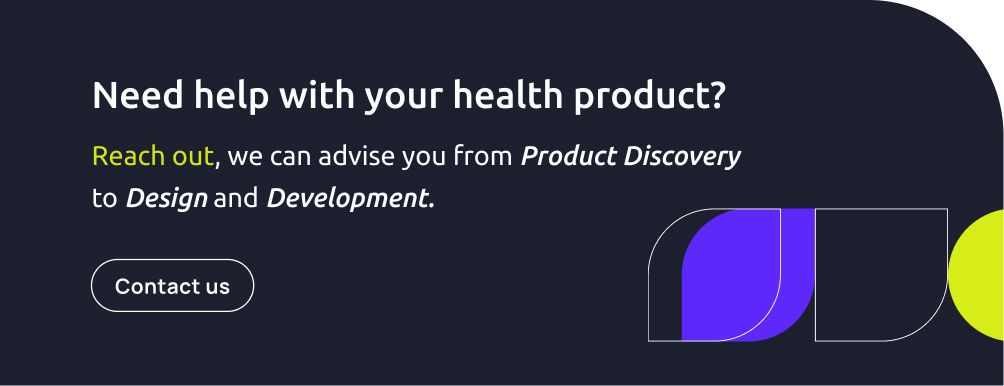
3: Making nurses' life easier with technology
Nurses took center stage this year at VIVE 2025, as their crucial role in shaping care delivery has not been forgotten. Nurses are on the frontlines of patient care, yet documentation remains a significant pain point. As Ryannon Frederick Chief Nursing Officer at Mayo Clinic, shared during the "Enhancing Care Through Seamless Integration: Just What the Nurse Ordered" panel, nurses at Mayo Clinic spend 90 to 120 minutes of their 12-hour shifts on documentation, which takes valuable time away from direct patient care.
Luckily, Remote Patient Monitoring and Ambient AI are changing this by automating routine data collection, allowing nurses to focus more on patients and less on paperwork. As Ryannon stated: "What nurses want is to spend that time with their patients. They don't want to be spending their time with their eyes on a screen or their fingers on a keyboard."
This idea applies to nurses, doctors, and anyone in healthcare. While incorporating RPM and AI is set to make a difference in care delivery, interoperability should remain a top priority, allowing healthcare professionals to ditch repetitive administrative tasks and communicate smoothly with each other.
4: Wearables are here to stay
As we continued exploring different conferences and conversations at the event, we stepped into one that caught our attention regarding wearables. The 2023 Rock Health Digital Health Consumer Adoption Survey found that 44% of Americans own a wearable health tracker, a relevant aspect to consider in an industry where we often discuss adoption-related issues. With this in mind, Sarah Pletcher, Esther Kim, Rodolphe Katra, Daisy Wolf, and Joland Rutgers centered the discussion on these devices' potential for healthcare and their hopes.
From the very first question, it was clear that this panel was going to reinforce what we all thought: Wearables are giving patients more control over their health. With the right tools, they can prevent and address health issues before they happen. At the same time, monitoring devices are helping doctors make better decisions and provide care that's more personalized and focused on the patient.
When asked how would the future look like in terms of wearables, answers gravitated to:
- Smaller, Better, Cheaper, Faster: The technology behind wearable devices will continue to improve, becoming more affordable, compact, and efficient.
- Better Data & Insights: Wearable data will improve through sensor technology, AI, and machine learning advancements. Sensors will become more precise, capturing a wider range of health metrics, leading to better insights that can induce preventive care and help care delivery when needed.
- Seamless Integration into Daily Life: The future of wearables will involve devices that blend into daily life without being noticeable. We currently have rings and watches, but we are starting to see clothing or even patches that can easily merge into daily life.
- Holistic View of Health: Wearables will help create a broader, more comprehensive view of health. It won't just track vitals but also consider factors like food insecurity or living conditions (e.g., home temperature), providing a more holistic understanding of a patient's well-being. Both patients and care teams would benefit from enhanced behavior change support, with AI playing a key role in analyzing and acting on the data.
- Guidance for a Better Life: The future devices will provide personalized advice for improving quality of life, extending longevity, and supporting individuals in making healthier decisions seamlessly throughout their day. These devices could provide guidance, like suggesting better health choices (e.g., drinking water instead of coffee) in a natural and effortless way.
We surely can expect personalization of care to a level we have not yet seen in the industry in the near future. So, what are the barriers to actually integrating this data into clinical care today? As Esther said:
"It's not so much the tech of getting it in there. It's the who does what with it, when and [in] what situations "
The cold never bothered us anyway; we had a blast at Light-it's side-event!

But not everything was all about serious debate and discussion for us! We made sure to sprinkle in some fun, too. And it's safe to say that Light-it absolutely stole the show in the entertainment track! We had the pleasure of co-hosting Health Tech Does Honky Tonk alongside our fantastic Harbor partners—Light-it, Tellescope, Candid Health, and Zus Health, and it was a huge success!
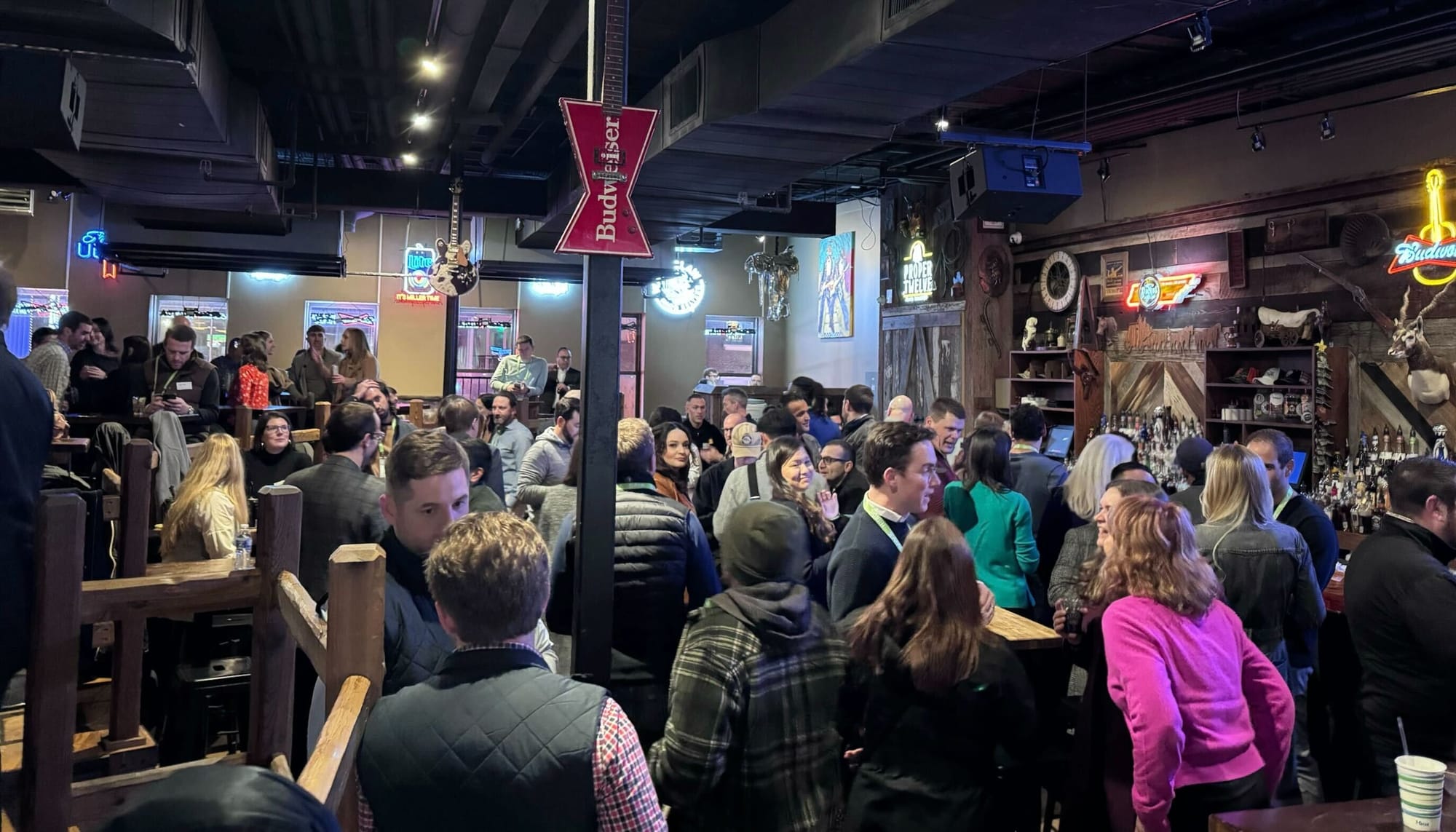


With over 400 digital health folks, live music, and just enough whiskey to take the edge off the cold, the night was filled with laughter, networking, and unforgettable moments that set the perfect tone for the event ahead. From engaging conversations to a true Music City experience, we loved bringing everyone together for this unforgettable pre-conference kickoff!
Don't worry about FOMO—we'll be hosting amazing events soon! Follow us and stay tuned 😉
Light-it at ViVE 2025 | Final thoughts
Light-it's involvement in ViVE 2025 wasn't just about gaining industry insights—it was about actively engaging in the transformative conversations shaping the future of healthcare. A key point highlighted through panels and conversations is to integrate technology in a purpose-led way, just like we do at Light-it.
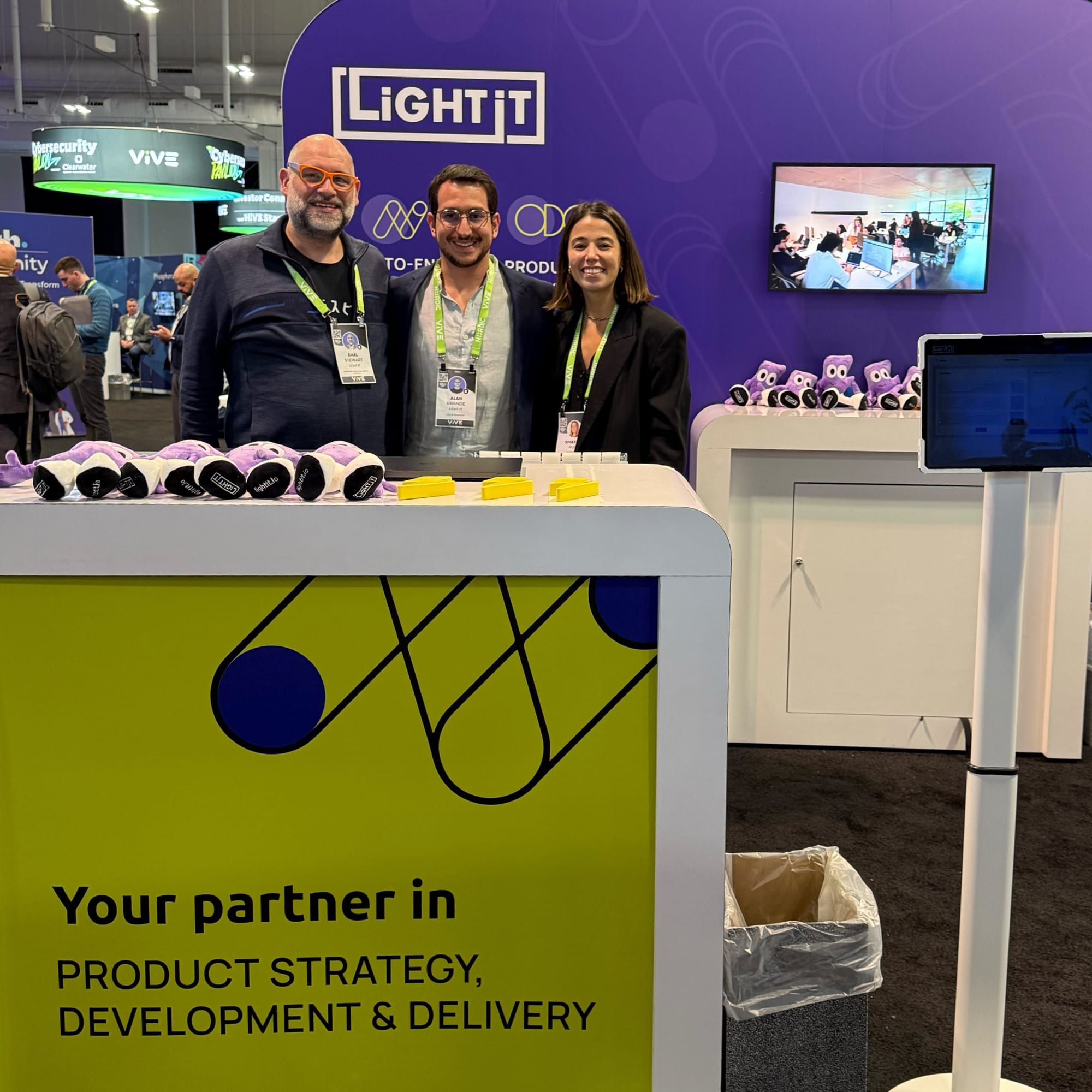
Our adrenaline is still through the roof! ViVE is undeniably a major driver of digital health progress. We walked away feeling proud, knowing we're key players in the ongoing digital transformation of healthcare.
And hey, If you missed the chance to meet us in Nashville, it's not too late to connect with us! Let's keep the ViVE rolling and continue the conversation!
